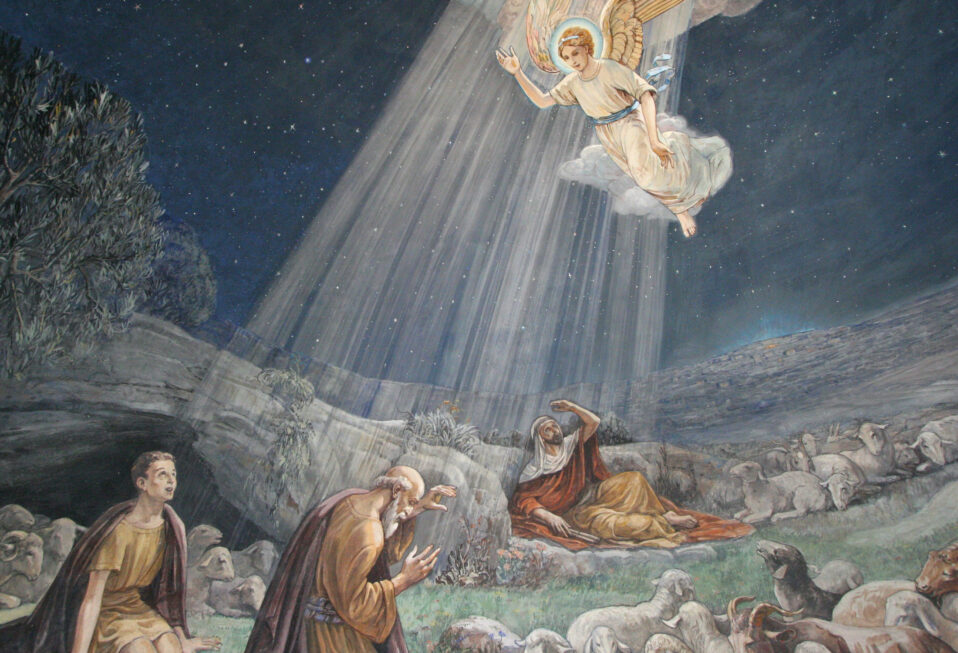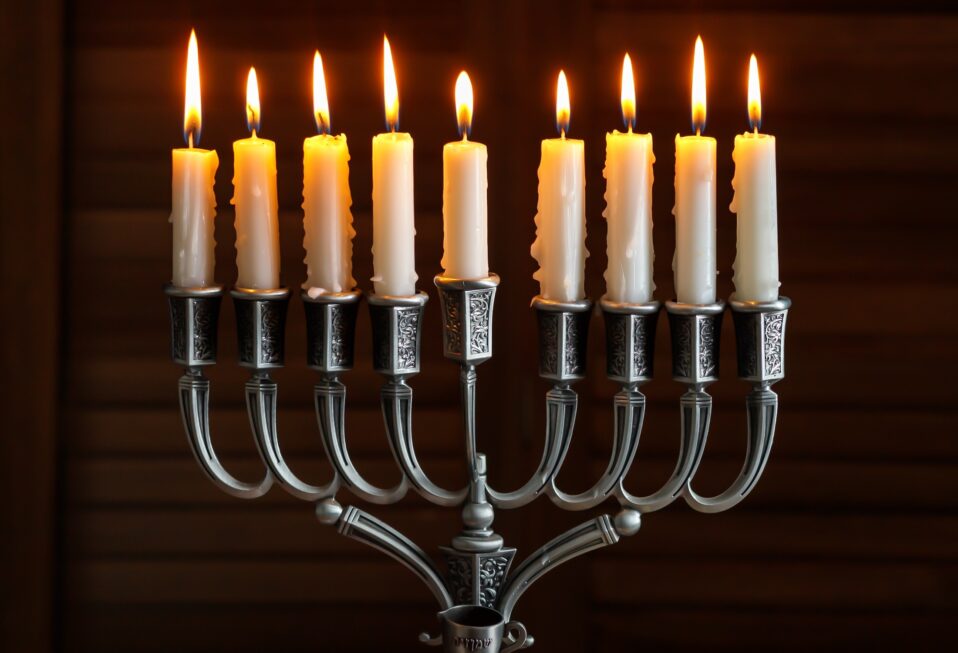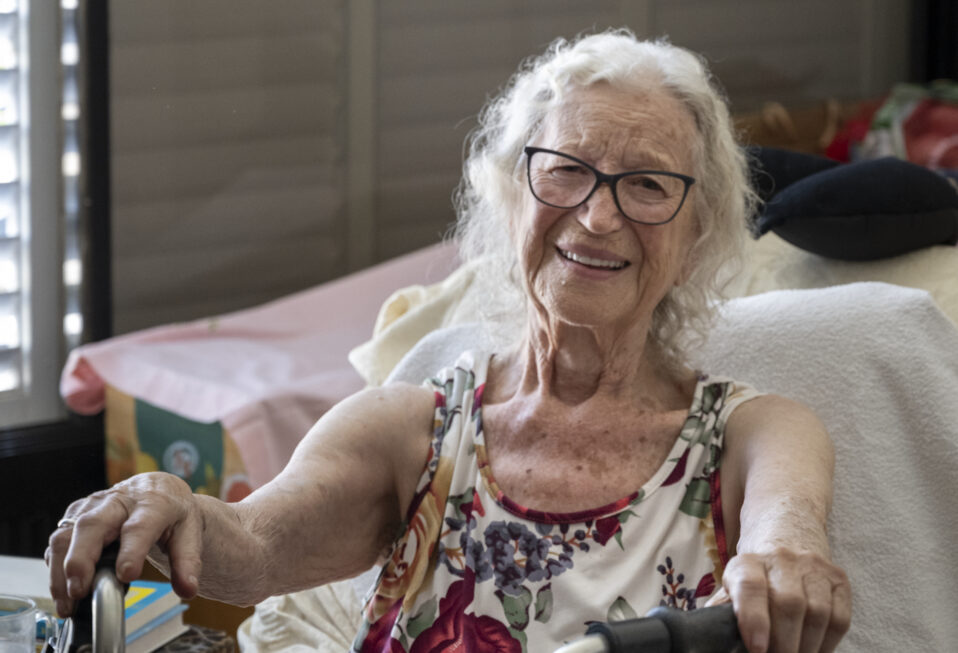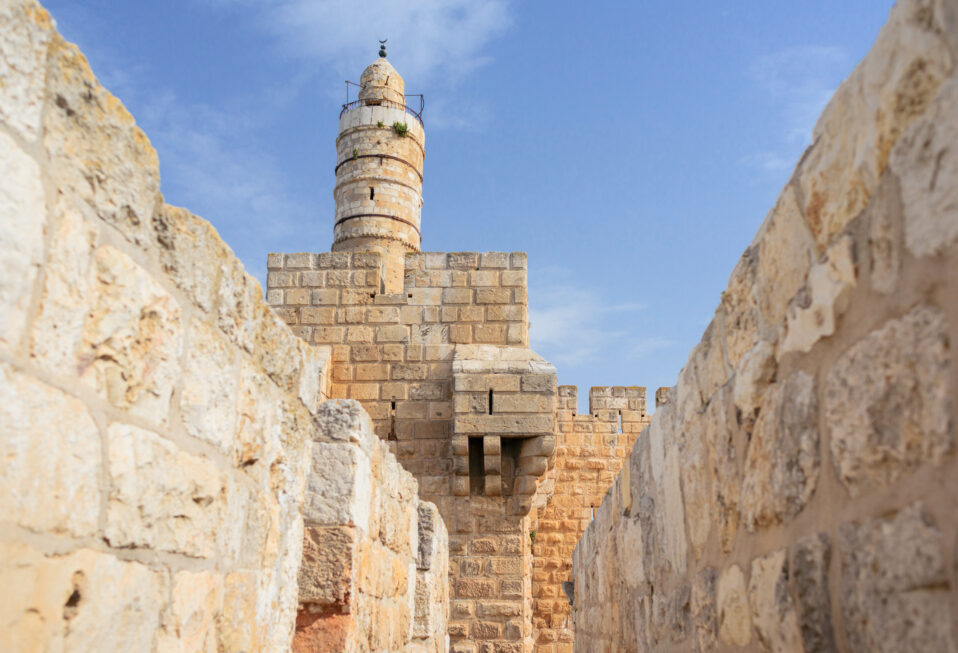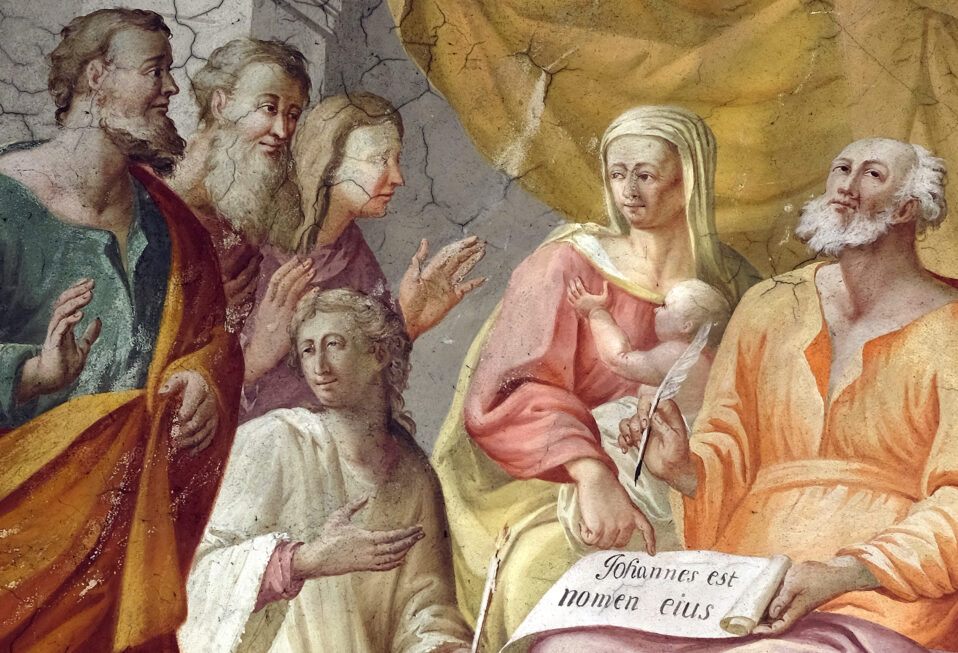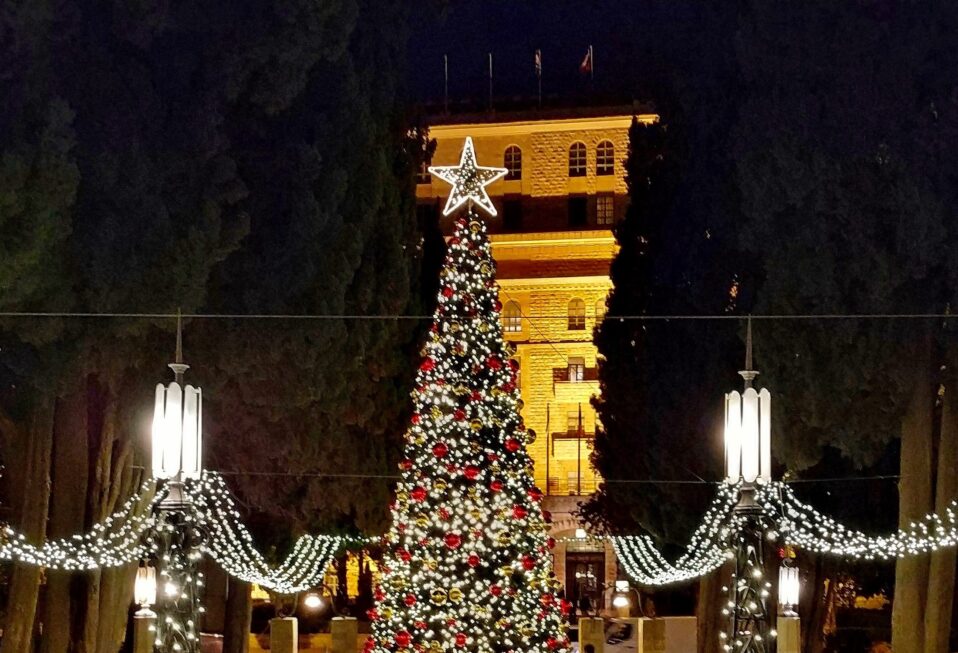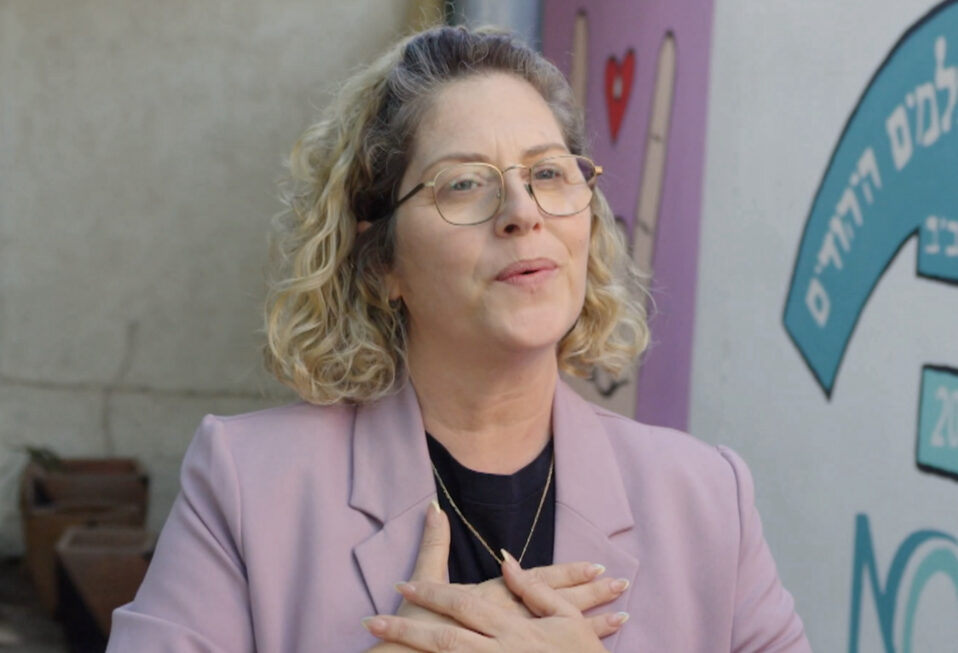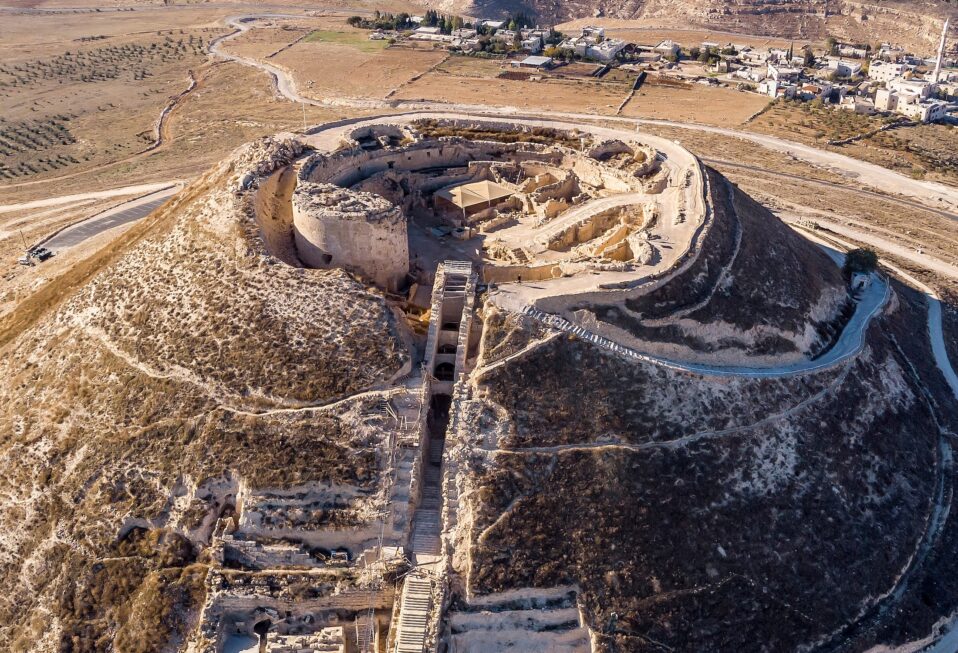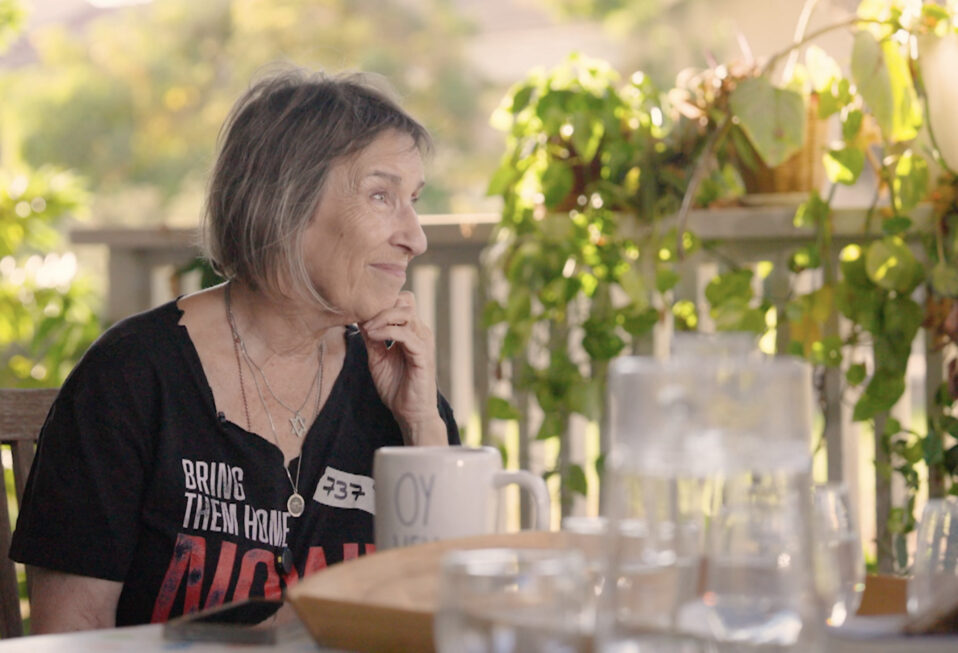“Now there were in the same country shepherds living out in the fields, keeping watch over their flock by night. And behold, an angel of the Lord stood before them, and the glory of the Lord shone around them, and they were greatly afraid. Then the angel said to them, ‘Do not be afraid, for behold, I bring you good tidings of great joy which will be to all people. For there is born to you this day in the city of David a Savior, who is Christ the Lord. And this will be the sign to you: You will find a Babe wrapped in swaddling cloths, lying in a manger.’ And suddenly there was with the angel a multitude of the heavenly host praising God and saying: ‘Glory to God in the highest, and on earth peace, goodwill toward men!’” (Luke 2:8-14)
At Christmas we love to sing about the angels. We know the familiar words, we hum the familiar melodies, and we lift our voices with “Glory to God in the highest.” Yet the wonder of this moment is easy to pass over if we do not pause and listen carefully to what heaven actually proclaimed.
The angels did not appear in palaces or to the powerful. They came to shepherds, working men on the night shift, watching over their flocks in the fields. The announcement of the Messiah was delivered first to people the world often overlooks. That alone reveals the heart of God. When God drew near in Jesus, He did not begin with the impressive. He began with the humble.
Luke tells us the shepherds were terrified as the glory of the Lord shone around them. Their fear makes sense. The sudden brightness, the heavenly messenger, and the weight of holiness all felt overwhelming. But the first words from the angel were not words of judgment. They were words of comfort: “Do not be afraid.” God’s nearness was not meant to crush them. It was meant to bring them joy.
The angel called the message “good tidings of great joy which will be to all people.” That phrase is easy to read quickly, but it is a sweeping declaration. The birth of Jesus was not good news for a small circle of insiders. It was the announcement that God’s favor and mercy had moved toward the world. The Savior was born, and His coming would touch every nation, every class, every kind of person, and every broken place.
Then comes the angels’ song: “Glory to God in the highest, and on earth peace, goodwill toward men.” God’s glory and human peace are linked here. When God is given His rightful place, when His reign is welcomed, peace begins to take root on earth. This peace is not merely the absence of conflict and strife. It is the wholeness God intends, peace that heals, restores, reconciles, and makes new.
The sign given to the shepherds is just as striking as the song. They would not find a child in a royal court, wrapped in expensive fabrics. They would find a baby wrapped in simple cloths, lying in a feeding trough. The King arrived in humility. God stepped into history without spectacle, yet with unstoppable purpose. The shepherds were invited to see with their own eyes that God’s salvation had come near.
This is why the angelic proclamation still matters. It tells us that God is not distant. He is involved. He sees the suffering of the righteous and hears the cries of the afflicted. His mercy is not scarce, and His goodwill is not limited. In Jesus, God has drawn near to show us His heart, to reveal His will, and to bring hope into the real places where we live.
If God announced His peace to shepherds in the dark, He can speak peace into our darkness too. If the first Christmas began with fear that turned into joy, then our own fear can be met by the same grace. The angels’ words remind us that in the birth of Jesus, God is with us and for us. Therefore, we have hope.
PRAYER
Father, thank You for drawing near to us in Jesus. Let the song of heaven shape our hearts this Advent. Help us to receive Your peace and to extend Your goodwill to those around us, especially those who feel overlooked or far from You. May our lives proclaim what the angels sang: Glory to God in the highest, and on earth peace. Amen.


